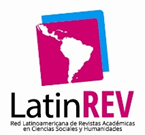English for specific purposes for the strengthening of employability in students of technical and professional secondary education in Chile
Abstract
This research sought the connection between the English language for specific purposes with the future employability of technical-professional high school students, with the idea that English is a useful tool for the world of work and a bridge to promote equality in education in public schools. In this way, an exploratory mixed sequential study with equal Qual/Quan status is undertaken to diagnose the levels of English language for specific purposes in students of technical and professional secondary education. For such purposes, an instrument is validated by means of a non-probabilistic sample consisting of 116 fourth-year students of the technical specialties of administration and accounting, together with a Focus Group carried out post-results to 3 teachers and 2 head teachers, all members of a polyvalent professional technical High School, located in Maipu, Santiago-Chile. he results indicate that students graduate with a low command of English, which is not very useful to understand or produce texts for specific purposes, where the English language in professional technical secondary education turns out to be an undeveloped tool to improve job insertion and the employment opportunities of the graduates.
KEYWORDS: Technical and vocational education, Education and employment, Professional competence, Second Language Teaching, Linguistic Competence.
DOI: 10.21703/rexe.20191836espinoza16
Downloads
References
Anthony, L. (1997). English for Speciic Purposes: ¿What does it mean? Why is it diferent? Recuperado de http://www.interserver.miyazaki-med.ac.jp/~cue/pc/anthony.htm
Brunner, J. J. (2001). Competencias de empleabilidad. Recuperado de http://www.brunner.cl/?p=247
Brewer, L. (2013). Enhancing youth employability: What? Why? and How? Guide to core work skills/. International Labour Oice, Skills and Employability Department. - Geneva: ILO.
Campos Ríos, G. (2003). Implicancias económicas del concepto de empleabilidad en la reforma educativa. Revista Iberoamericana de Educación, 33(2), 1-9.
Cohen, L., & Manion, L. (2002). Métodos de Investigación educativa.( Vol 2).Madrid: Editorial La Muralla, S.A.
De Grip, A., Van Loo, J., & Sanders, J. (1999). Employability in Action: An Industry Employability Index. Skope Research Paper, 1-19.
Dudley-Evans, T. (1997). An Overview of ESP in the 1990s. England: he University of Birmingham.
Dudley-Evans, T., & St.John, M. (1998). Developments in English for Speciic Purposes.A Multi-Disciplinary Approach. Cambridge: Cambridge university press.
Educar Chile. (2011). Resultados Simce Inglés 2010. Santiago, Chile.
Fundación para el Desarrollo de la Función de Recursos Humanos (FUNDIPE). (2007). Informe sobre empleabilidad. Madrid: Fundipe. Recuperado de http://www.fundipe.es/archives/INFORMEE_Seguro.pdf
Gazier, B. (2001). Employability: the complexity of a policy notion. En P. Weinert, M. Baukens, P. Bollèrot, M. Pineschi-Gapènne, & U. Walwei, Employability: Froom theory to practice (págs. 3-23). New York: Taylor & Francis.
Hernández, R., Fernández, C., & Baptista, P. (2010). Metodología de la Investigación (Vol. 5). México: Mac Graw Hill.
Hutchinson, T., & Waters, A. (1987). English for Speciic Purposes: Learning- Centred Approach. Cambridge: Cambridge University Press.
Larrañaga, O., Cabezas, G., & Dussaillant, F. (2013). Estudio de la Educación Técnico Profesional. Santiago: Programa de Naciones para el Desarrollo.
Mineduc. (2008). Programa de Inglés Abre Puertas. Santiago: informe Centro Nacional de Voluntarios.
Mineduc. (2014). Síntesis Resultados de aprendizaje. Simce 2014 Inglés. Santiago: Agencia de la Calidad de la Educación.
Mineduc. (2016). Estudiantes de Pto. Montt rinden exámenes de inglés de Cambridge. Recuperado de Programa Inglés Abre Puertas: Https://ingles.mineduc.cl/2016/12/16/estudiantes-ptomontt- rinden-examenes-ingles-cambridge/
OCDE. (2010). Learning for Jobs.Synthesis Report of the OECD Reviews of Vocational Education and Training. Paris: OECD.
Pérez, P. (2005). Sobreeducación, desclasamiento y la compleja relación entre educación y empleo. Anales del V Encuentro Internacional de Economía (págs. 63-65). Buenos Aires: Editorial CIEC.
Programa de Competencias Laborales de Fundación Chile. (2003). Las competencias de empleabilidad. Una aproximación al modelo del Programa Preparado. Santiago: Fundación Chile.
Romero, M., & Faouzi, T. (2018). Validación de un modelo de competencias pedagógicas para docentes de Educación Media Técnica. Educación y Educadores, 21(1), 114-132. doi:10.5294/edu.2018.21.1.6
Sevilla, M. P. (2012). Educación Técnica Profesional en Chile: Antecedentes y claves de diagnóstico. Santiago: Centro de Estudios. División de Planificación y Presupuestos. Ministerio de Educación. Gobierno de Chile.
Sevilla, M. P. (2014). La educación Técnica en Chile y Estados Unidos desde una perspectiva histórica y comparada. Calidad en la Educación, 40, 297-317.
Unesco. (2012). Shanghai Update Follow-up on the UNESCO. hird International TVET Congresson Technical, Vocational Educaton, and Training (pág. 4). Shangai: UNESCO.
Unesco. (2017). Promover el Aprendizaje para el mundo laboral. Recuperado de https://unevoc.unesco.org/go.php?q=trasfondo+Qu%C3%A9+es+la+EFTP%3F+&context
Widdowson, H. G. (1998). Communication and Community: he Pragmatics of ESP. English for Specific Purposes, 17, 3-14. doi:https://doi.org/10.1016/S0889-4906 (97)00028-8
Widdowson, H. G. (2001). Teaching Language as communication (12 Ed.). Oxford: Oxford University Press.
Yilorm, Y., & Lizasoain, A. (2012). Evaluation of the Implementation of the FOCAL SKILLS Approach. Literatura y Lingüística, 25, 121-143. doi:https://dx.doi.org/10.4067/S0716-58112012000100007





